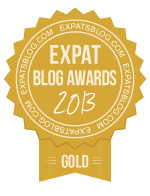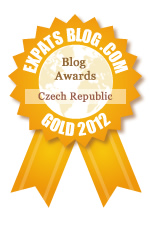 South Africa
South Africa is the southernmost country in
Africa.
The country is huge! It stretches from the South Atlantic to the Indian Ocean and it's almost twice as big as Texas. It borders Namibia, Botswana, Zimbabwe, Mozambique, Swaziland, and it completely surrounds Lesotho.

The
Republic of South Africa is home to almost 56 million people. There are three capital cities.
Pretoria is the administrative capital and where countries keep their embassies. Bloemfontein is the judicial capital and
Cape Town is the legislative capital.
Johannesburg is the country's largest city.

South Africa has some of the world's oldest archaeological and human fossil sites. The first Europeans arrived in 1652 and there were many power struggles between the Boers (Dutch descendants), British and local tribes. In 1910, the Union of South Africa was established. In 1961, the country left the British Commonwealth and became a republic.

In 1948, the National Party came to power and instituted its apartheid policy that increased the racial segregation that began under Dutch and British colonial rule. All people were classified into one of three races which allowed the white minority to enjoy the highest standard of living in Africa while the black majority was completely disadvantaged.
Apartheid finally ended in 1991. The first universal elections took place in 1994. The African National Congress (ANC) won by an overwhelming majority and has been in power ever since.

South Africa is a multiethnic society with about 80% of the population having Sub-Saharan African ancestry. The country has eleven official languages: Afrikaans, English, Ndebele, Northern Sotho, Sotho, Swazi, Tswana, Tsonga, Venda, Xhosa, and Zulu. The four most spoken first languages are Zulu, Xhosa, Afrikaans, and English.

South Africa has the second-largest economy in Africa and the 34th largest in the world. Along with Brazil,
Russia, India, and
China, it is the fifth of the "BRICS" which is the association of five major emerging economies. However, there is still a high rate of poverty. The Rand is the national currency.

It is a country of firsts. It is the first country in the world to explicitly prohibit discrimination based on sexual orientation in its Constitution. In November 2006, it became the first country in Africa to legalise
same-sex marriage.
South Africa is the only country in the world to destroy its nuclear weapons.
There are about 7 million people in the country living with HIV-AIDS which is more than anywhere else in the world.
Crime is a major problem. About 50 murders are committed every day and an estimated 500,000 women are raped each year. There are more private security guards in the country than the police and army combined.
Here are a couple of short YouTube videos about how powerful the country is and about its corruption problem.
©Test Tube News
©Test Tube News

South Africa is way far away. As the southernmost country in Africa it is actually closer to Antarctica than it is to Czechland. It's about an 11 hour flight from London. I'm
going in July for a week. I know it's a short amount of time for such a long trip but I'll just have to cram in as much as I can. I'm flying in to Johannesburg and out of Cape Town. At least I am right now. Cape Town has a major water problem right now so who knows what the situation will be in July.
©CBS News
 Back in the end of November I participated in my first photo shoot.
Back in the end of November I participated in my first photo shoot.  As part of a global marketing campaign, professional photographer Mike Webb travelled to shoot IBMers all over the world.
As part of a global marketing campaign, professional photographer Mike Webb travelled to shoot IBMers all over the world.  The photo shoot was surprisingly fun.
The photo shoot was surprisingly fun. 










































































